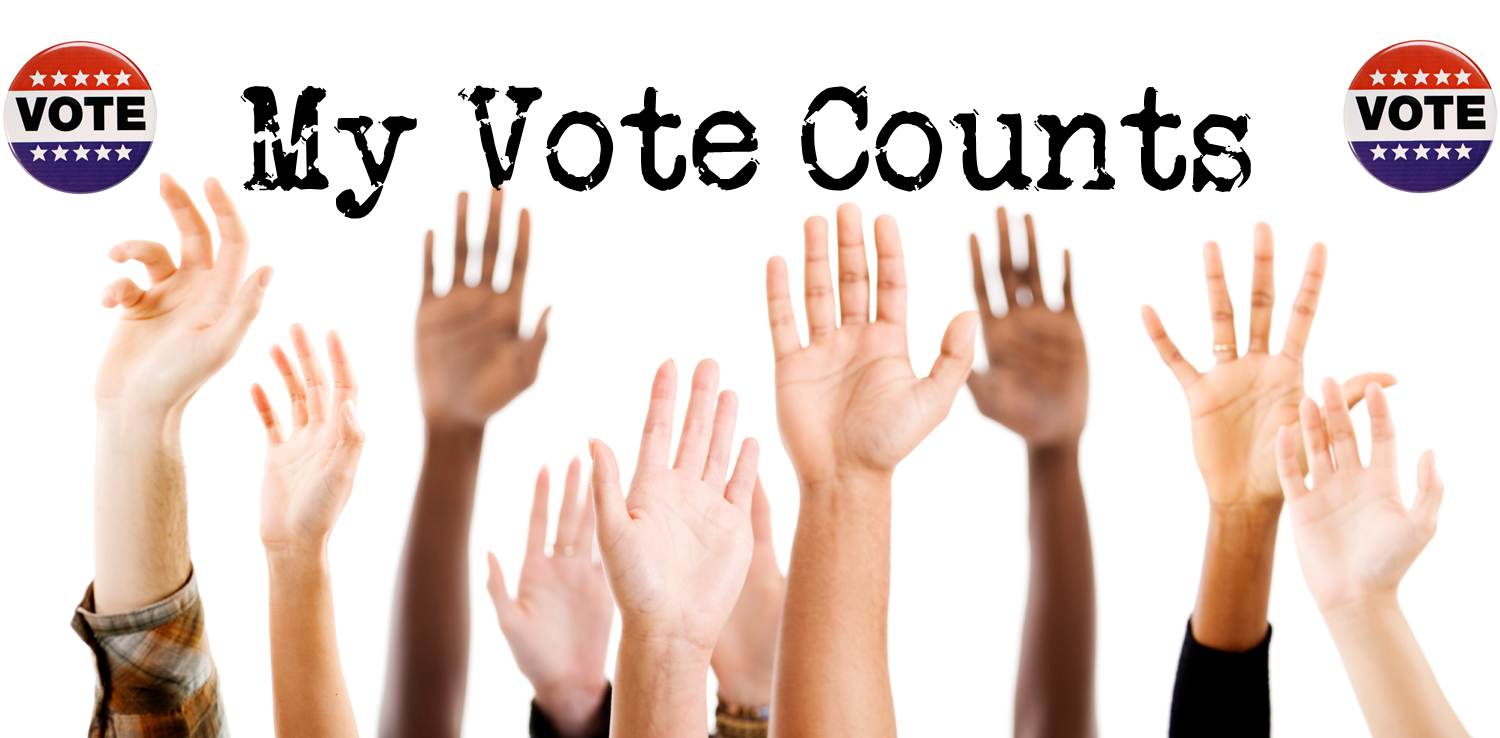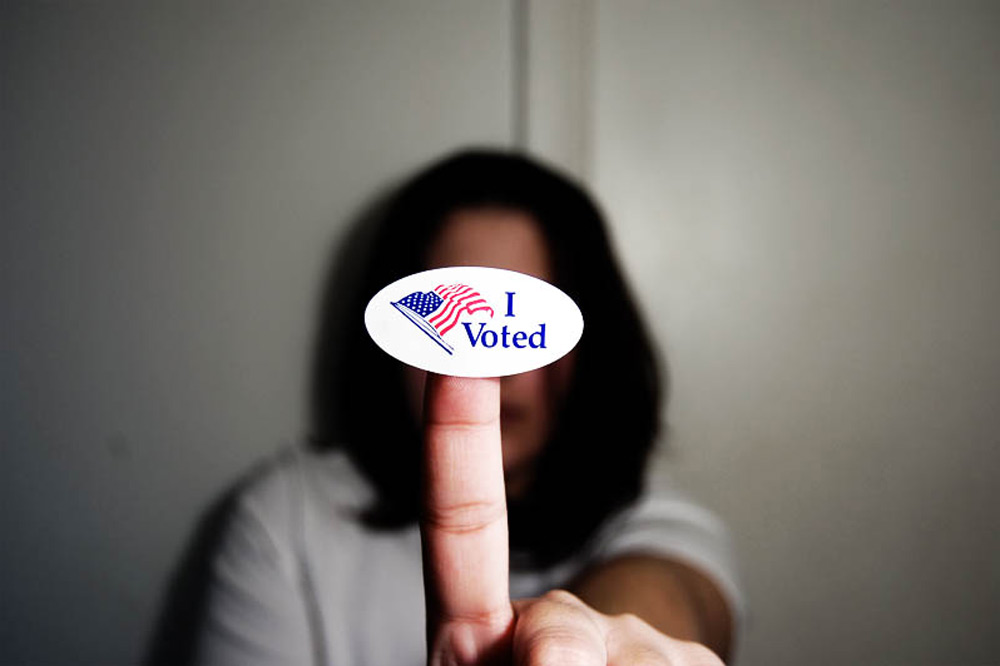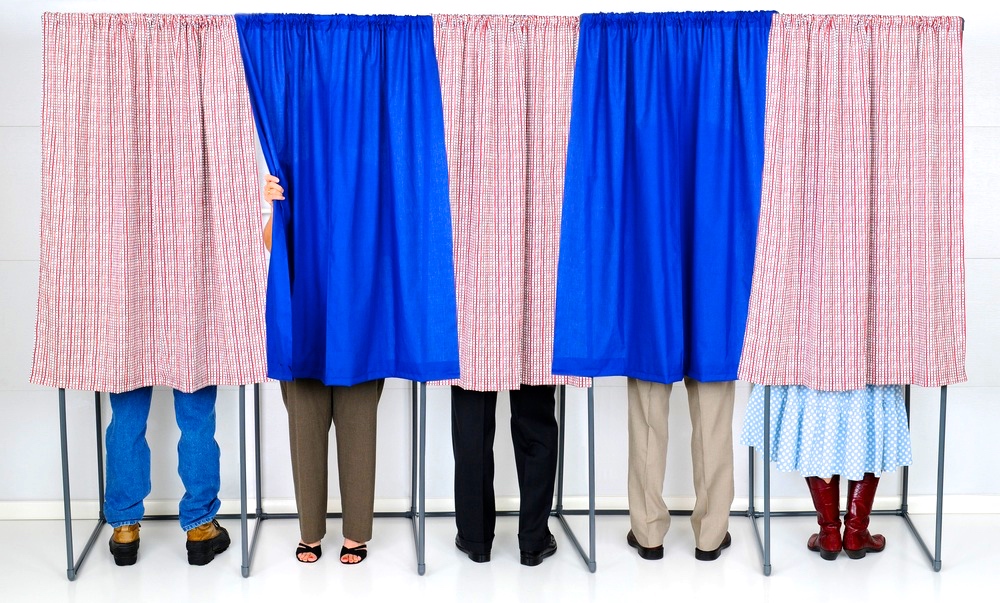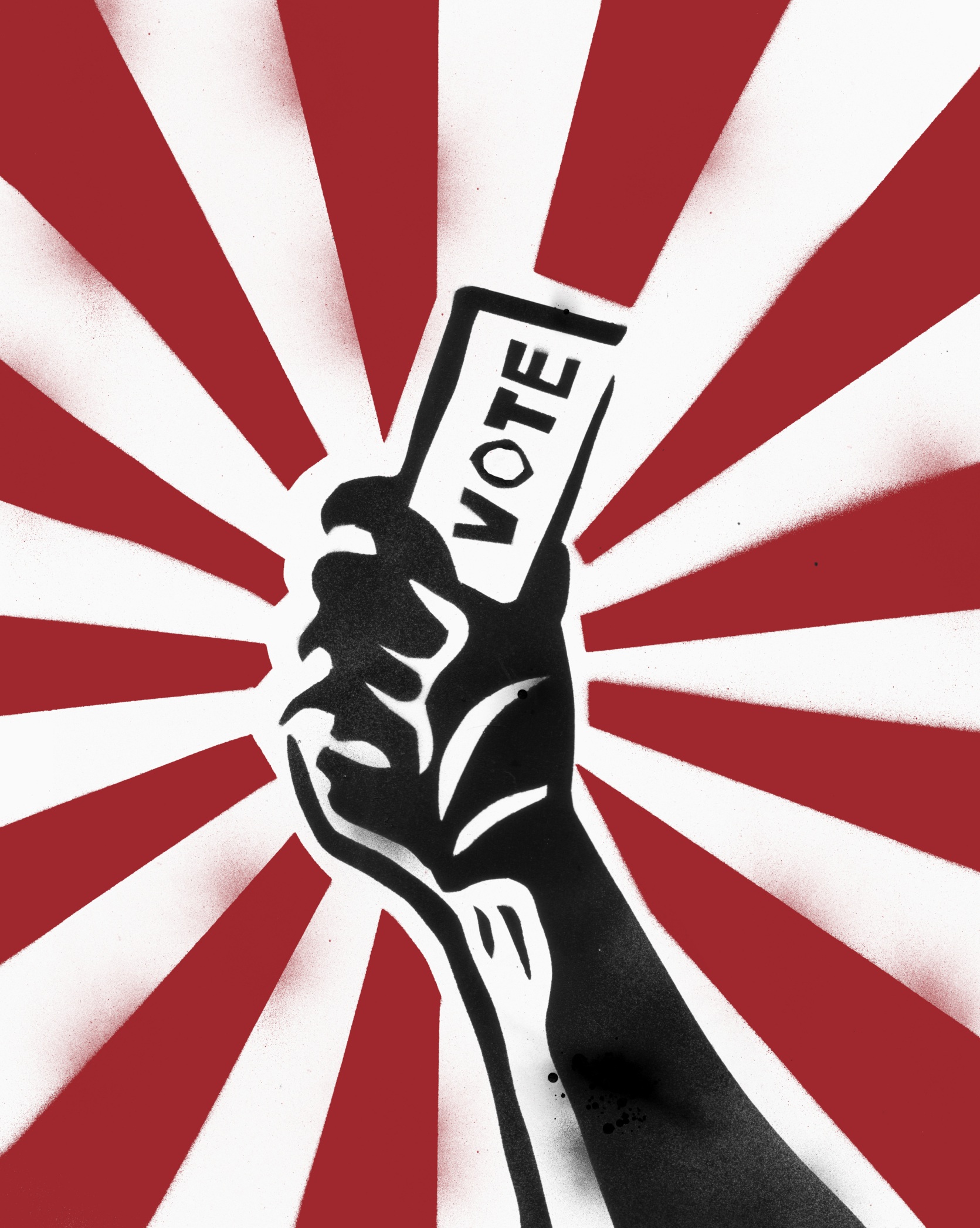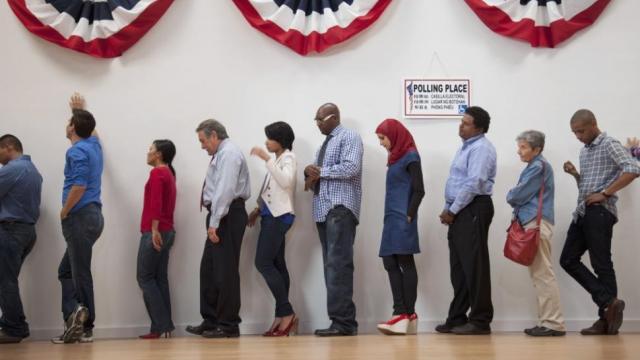
Voter turnout this past November was the lowest in 72 years, coming in at 36.4% of eligible voters, just above the 33.9% of eligible voters who showed up at the polls in 1942. Yep, the last time voter turnout was this atrocious, much of the eligible voting population was preoccupied with Hitler.
So, what's our excuse this time?
Nothing quite so cut and dry, unfortunately. The problem plaguing the empty polls today is a much more complex one that speaks to systemic corruption and young disillusionment.
This election cycle, millennials made up 12% of the voter turnout. Voters aged 60 and over made up 37%. That means grandparents and older parents are more than three times as likely to vote as 18- to 29-year-olds.
Why is this a problem? Because the younger generations are the ones who will shape this country, and we're currently inheriting an oligarchical tsunami of monied politics over public interest. Instead of actively building a wall of political power to counter that trend, today's generation is mostly shrugging its shoulders and drowning in passive complicity.
Why?
The Center for Information and Research on Civic Learning and Engagement analyzed youth voter turnout in 2010, when millennials once again came in at 12% of the overall voter turnout. The group found that young people are less likely to show up at the polls for two main reasons
First, it's not easy enough to vote. Whether due to polling locations, access to information on candidates or issues, or knowledge of voting hours, young people find it's not easy enough to fit it into their schedules.
Second, and more troubling: they don't feel that their vote counts. An overwhelming amount of 18- to 29-year-olds said they felt their vote didn't matter in shaping the course of their country.
As someone who fits into that age category, I can echo the findings of these analytics with real life experience. And perhaps most frustrating is that the lack of voting among my age group doesn't necessarily correlate to a lack of knowledge or understanding of today's political system.
In fact, if you ask the average 20-something, you'll find no illusion as to whether or not America needs systemic reform. In turn, that's exactly why they feel their vote doesn't count: because the system is too “f***ed up” for their vote to matter.
The irony here, of course, is that if you don't vote, your voice doesn't count. You didn't speak up and, instead, signed your name in silent complicity. Further, by not voting, each consecutive election becomes more difficult to affect real change because the influence of money and corporate rule over the legislative process grows.
The vicious cycle repeats, with millennials using the downward spiral as their excuse for not voting. Meanwhile, legislation like the Cromnibus package passes without so much as a “WTF” by the young constituency who will bear most of the burden from its passage. So it goes, round and round.
Polls mirror the people who show up at them. And clearly, last November, conservatives were the ones googling their local polling place. While incoming Republicans may pat each other on the backs, everyone knows their victory is more due to who didn't show than who did. The majority of millennials, in fact, place themselves left of center. A 2011 Pew research poll showed 43% of young respondents favored socialism to capitalism. Paging Bernie Sanders!
And yet, at a time when almost everyone in the country feels our Congress and our President have failed us, we, the people, voted in the representatives least likely to change the status quo, least likely to fight corruption and least likely to pass any sort of legislative reform. Ladies and gentlemen, get ready for our new Congress: from raising the Keystone XL Pipeline from the dead, to digging deeper into shadowy judicial caverns for a legal silver bullet to implode Obamacare, our incoming Congress will be doing little for us and a whole lot for corporate America.
So, what do we do about it?
Voting is the obvious and easy answer. Again, it's not that cut and dry. Widespread distrust of the political system is unlikely to turn anytime soon. But as political analysts perused the dismal numbers from this year's election, several came to the conclusion that what the U.S. finally needs is compulsory voting.
Twenty-two countries around the world practice compulsory voting, including Australia, Belgium and Argentina. Don't worry, compulsory voting isn't as dictatorial as it sounds. In fact, many consider it a necessity to maintain a republic or democratic form of government that is, by definition, dependent upon the participation of the people.
As Donna Brazile wrote in a CNN op-ed piece, “We require jury attendance, paying taxes, and public education attendance because those are also essential functions [of democracy]. Is voting less important?”
This is a frequent argument made by those in favor of compulsory voting. We've chosen to live in a republic and we can't act as “watchmaker” gods, expecting it to run on its own without our involvement.
Another argument, posed in the same CNN op-ed piece, comes from William Galston, who suggests that mandatory voting would force legislators not only to appeal to the people as opposed to the big banks that fund them, but would also lead to far more compromise and lessen the current curse of gridlock. People would be more attentive to public policy if they know they have to vote at some point, thereby forcing legislators to actually legislate in the halls of Congress.
In the same vein, the corrupting influence of money in politics would be necessarily curtailed – because 90% of people in the U.S. today feel that money has a corrupting influence in politics, and those people would be at the polls.
Another argument in favor of compulsory voting is that it all but ensures that the majority of voters would better educate themselves on the candidates and the issues, thereby casting a vote for what really matters to them and their community. Sure, you have a few people casting throw-away votes for Oprah and Donald Duck, but those unwilling participants make up a minority. In fact, random votes made up only 2-3% of the overall votes in Australia's first mandatory voting election in 1925, where 91% of the population voted. Since then, the country's voter turnout has stayed around a plump 95%.
Now, for the arguments against compulsory voting, the obvious one is that it curtails our "freedom." Well, guess what: your freedom is being curtailed right now by the simple fact that we live in an oligarchy where monied elites run the show. Corporate campaign spending aside, voter turnout suggests that we don't want, ergo don't deserve, a republic. As Benjamin Franklin replied when asked whether we had a republic or a monarchy: “A republic, madam – if you can keep it.”
And right now, we're not keeping it.
Our freedom is based on the outline of a republic, and a republic is based on the concept of vox populi. If the people are silent, how can we have either a republic or the freedoms associated with one?
As Brazile noted, we pay taxes because we live in a community and it's our civic duty to contribute to the roads, the schools, the bridges, the fire department, etc. Are those infringements upon our rights? The push-pull of individual freedom vs. social responsibility has been an issue since the earliest days of America. And it's a constant conversation worth having, because part of being a republic means questioning our collective decisions. Hence, the concept of voting.
For the Republicans out there who suggest that compulsory voting would only help the left, this isn't necessarily true. A 2003 political science study showed that while “Democrats typically do better under full turnout, the Democratic candidate was not always the beneficiary.” And by the way, if you're afraid that your party may lose if too many people cast a vote, maybe it's time to change your party's message – because it obviously isn't resonating with the majority.
Another argument against compulsory voting, which came out of Australia, stemmed from the onslaught of negative ads and mudslinging as an exorbitant amount of money got poured into making sure people didn't vote for “that guy.” Well, have you ever turned on a U.S. channel around election time? We're not exactly a city upon a hill when it comes to fair, truthful or subtle political ads.
Election reform needs to happen, that much is clear. And compulsory voting isn't meant to fix all our problems. It's meant to make sure we simply show up in an effort to work toward fixing them. While I feel compulsory voting in the U.S. is a fantastic idea, I hold no immediate hopes that it will happen. After all, you'd need a large legislative push for such a law, and you're unlikely to get it from the corporate cronies we just voted in.
But if we can't start with mandatory voting, how about basic electoral reform through a more engaged populace. If my peers aren't voting because the restrictions on voting have become tighter and tighter – from ID laws to slashing early voting – then it's time we pushed for basic change in that arena first. Persuade your friends and family to vote. Progressive and pro-reform candidates are popping up all over the country and they need our support.
Get involved in the movement for electoral reform. Just because we can't stop the incoming Congressional circus from taking the reins this month doesn't mean we must stand by idly while they continue, over and over again, to fail us.
Get out and protest.
Write your congressmen, call them, email them.
Start a meetup group to discuss local or statewide issues of importance. Join an organization in your area that deals with the issues you most care about.
Visit media sites like the ones listed here to better inform yourself. And join active campaigns like the ones listed here to get involved.
Mandatory voting may have to wait, but our country's political future can't.
3 WAYS TO SHOW YOUR SUPPORT
- Log in to post comments

